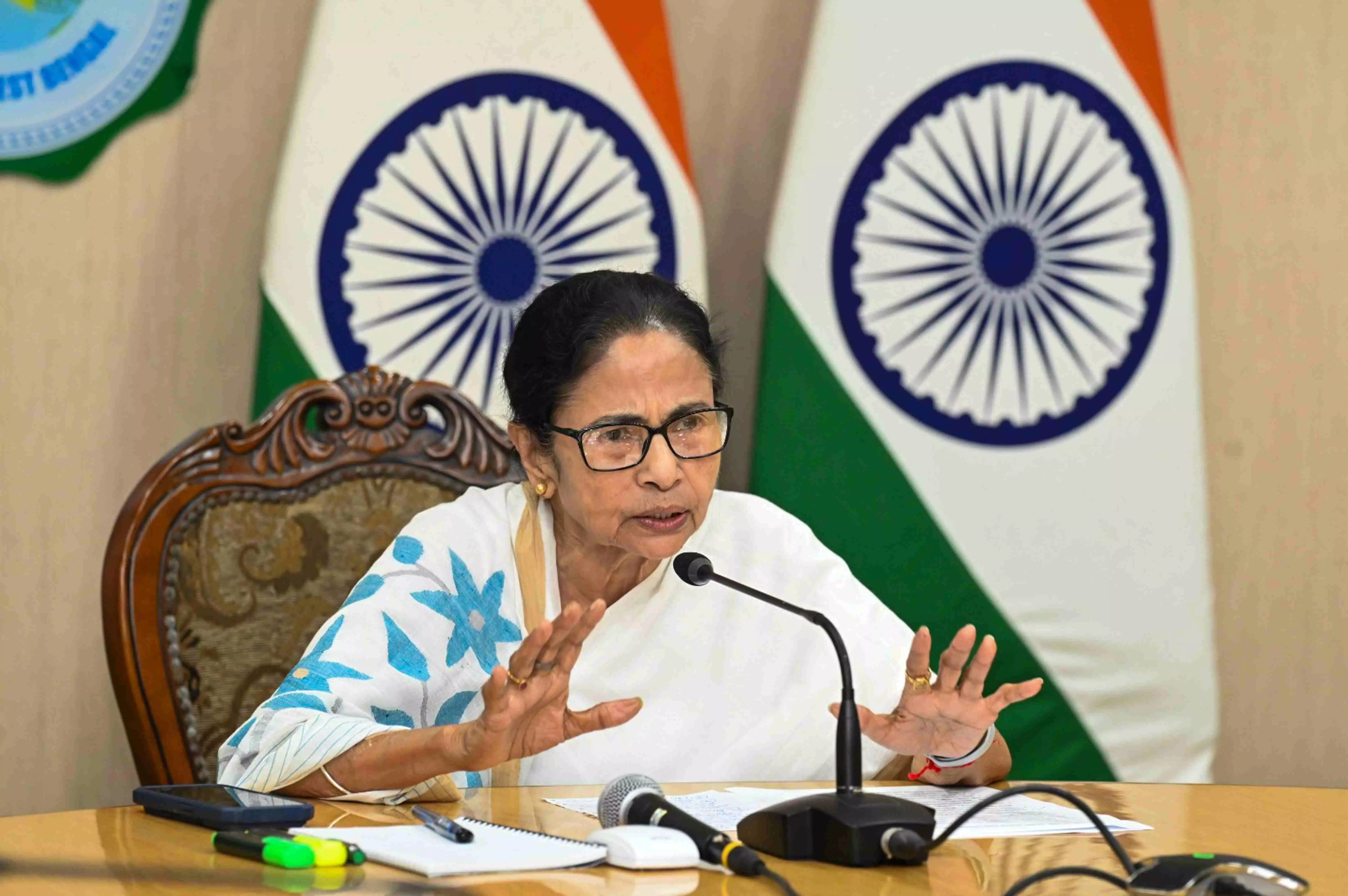
Mounting fiscal strain forces Bengal government to go on borrowing spree
However, Bengal sees a ray of hope in recent MGNREGA ruling, which provides respite from huge expenditures incurred by state to continue schemes the Centre stopped

The cash-strapped Trinamool Congress government finds the judiciary playing a dual role—both as an obstacle and an ally as it struggles to reconcile its growing welfare-oriented spending with the need for fiscal responsibility.
To the government’s relief, the Calcutta High Court directed the Centre last week to resume the MGNREGA scheme from August 1 in the state. The scheme had been suspended since December 2021.
MGNREGA substitute
As a substitute to the MGNREGA, the West Bengal government had started its own 'Karmashree Prakalpa' to provide at least 50 days of wage employment to each Job Card holder in every household in a financial year.
The state government claimed to have created 61 crore working days under the state-run scheme at a cost of Rs 12,355 crore in the last fiscal. It provided employment to 75 lakh job holders.
Also read: Calcutta High Court halts TMC govt relief for sacked school staff
This year, the state government had converged 52 departments with a target of providing employment to one crore job-card holders, said an official of the Panchayats and Rural Development department, the nodal agency to implement the scheme.
The high court’s directive will ease the burden of the scheme if the MGNREGA is revived, the official added.
Additional strain
The relief came within a month of another court’s directive that had put significant strain on the state’s exchequer. The state government was instructed by the Supreme Court in May to pay 25 per cent of the outstanding DA arrears to its employees by June.
These arrears from the period between July 1, 2009, and December 31, 2019, pertaining to the 5th Pay Commission were to the tune of Rs 40,000 core.
To pay one fourth of the arrears, the state government will have to cough up Rs 10,000 crore this month.
Also read: Bengal govt braces for confrontation with industry after it scraps 3-decade-old incentives
After settling regular expenses, the existing state treasury reserves could meet just a part of the sudden financial requirement that arose due to the court’s order, a senior state government official admitted, seeking anonymity.
State govt raises funds
The statement is indicative of the compulsion that compelled the state government to go for borrowings twice this month.
First, it has raised Rs 2,000 crore through 20-year bonds. This was followed by borrowing of another Rs 2,000 crore via 22-year State Government Securities (SGS).
The state government is also likely to participate in the Sovereign Gold Bond (SGB) auction on June 24, as part of the RBI's issuance schedule. It is expected to raise another Rs 3,500 crore from the auction.
The back-to-back borrowing led to speculation that amounts will be diverted to clear DA dues instead of using them for infrastructure development or other non-salary expenditures as is the norm.
This borrowing spree is bound to impact the state’s Fiscal Responsibility and Budget Management Act compliance.
The state already had to revise its earlier goal of maintaining the “maximum debt stock of 38 per cent of the Gross State Domestic Product (GSDP) up to the end of financial year 2029-2030”.
Also read: Bengal CM's financial assistance plan for sacked school staff illegal: Opposition
West Bengal’s debt to GDP ratio is 38 per cent and might increase further by the end of the current financial year.
Only Jammu & Kashmir, Nagaland, Arunachal Pradesh, Punjab, Himachal Pradesh, Mizoram and Sikkim have a greater debt burden.
Ray of hope
“The state will be in a severe debt trap if the TMC government continues to spend recklessly going beyond its constitutional mandate, like spending on temple construction,” pointed out columnist and Commonwealth fellow Debasish Chakrabarty.
The state government officials however see a ray of hope in the high court’s MGNREGA ruling. They are hopeful that the directive could provide respite to huge expenditures the state incurs in continuing the schemes the Centre has stopped.
Apart from the guaranteed wage, the state is running its own housing scheme after the Union government discontinued funding the Pradhan Mantri Awas Yojana scheme in the state.
The state has allocated Rs 15,457 crore from its resources to give rural housing benefit to 12 lakh beneficiaries.
The state would require to spend another about Rs 19,000 crore to provide benefits of the housing scheme to another 16 lakh beneficiaries before the next year’s elections as has been promised, the officials added.
The officials are optimistic that the court’s order on the MGNREGA, will now compel the Centre to release funds for other centrally-sponsored schemes, easing state’s financial burden.
The Calcutta High Court’s Friday order staying the West Bengal government's decision to pay stipends to non-teaching staff who had lost job due to Supreme Court’s April ruling in the 2016 recruitment scam, is another such ruling that has come as both boon and bane for the state.

